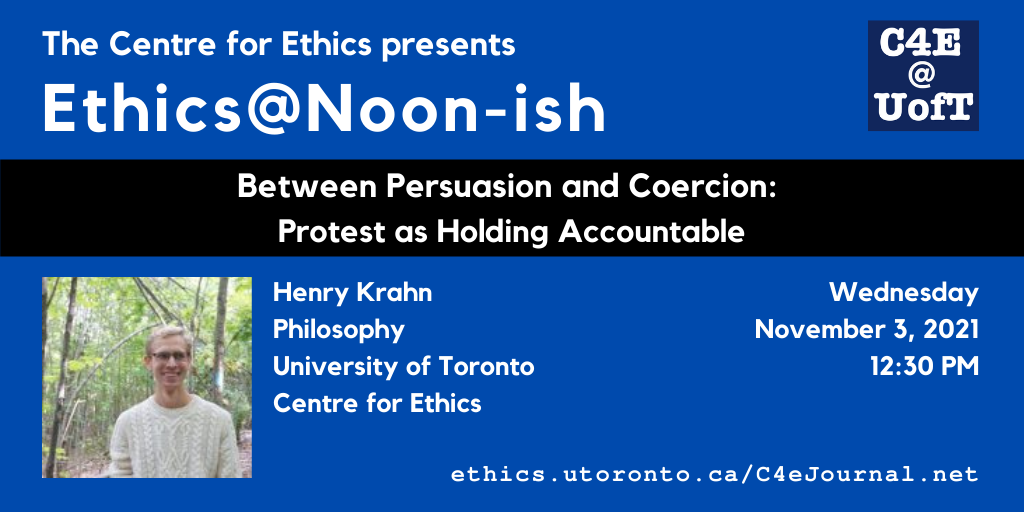
► To stay informed about other upcoming events at the Centre for Ethics, opportunities, and more, please sign up for our newsletter.
Between Persuasion and Coercion: Protest as Holding Accountable
In this talk, I argue that understanding forceful protest as a form of holding others accountable allows us to see how forceful protest can be neither persuasive nor coercive. As a result, I contend, this view of protest allows us to resolve some troubling justificatory questions facing forceful protest. I begin by presenting two parallel problems in political and moral theory, respectively. The first is the problem of coercive protest. Philosophical writing on civil disobedience often responds to a tension between the force of protest and respect for one’s fellow citizens. Contemporary protest movements often make use of forceful tactics, such as in blockades. But the language of force can evoke worries about coercion or of forcing one’s views on others. The second is the problem of sanctioning. On one hand, holding others accountable often involves sanctioning them—treating them harshly to get them to change their behaviour. On the other, moral philosophers often claim that viewing others as responsible agents requires that we reason with them, rather than train or manipulate them. But sanctioning might seem more like manipulation than reasoning.
I use these problems to motivate a view of holding accountable that presents a solution to both. Sanctions, on this view, are not a form of reasoning, but are reasons-structured. Properly sanctioning requires that we endorse the moral claims we uphold, and that we care about the ones we sanction changing their behaviour for the right reason. I contend that sanctioning is thus compatible with respect for others as rational agents. I then extend this account to offer a similar solution to the first problem: forceful protest can involve the symbolic imposition of sanctions which, although forceful, is nevertheless reasons-structured and so compatible with respect for one’s fellow citizens.
► please register here
This is an online event, available on the Centre for Ethics YouTube Channel. Channel subscribers will receive a notification at the start. (For other events in the series, and to subscribe, visit YouTube.com/c/CentreforEthics.)
 Henry Krahn
Henry Krahn
Centre for Ethics Doctoral Fellow
Philosophy
University of Toronto
Wed, Nov 3, 2021
12:30 PM - 01:45 PM
Centre for Ethics, University of Toronto
200 Larkin
